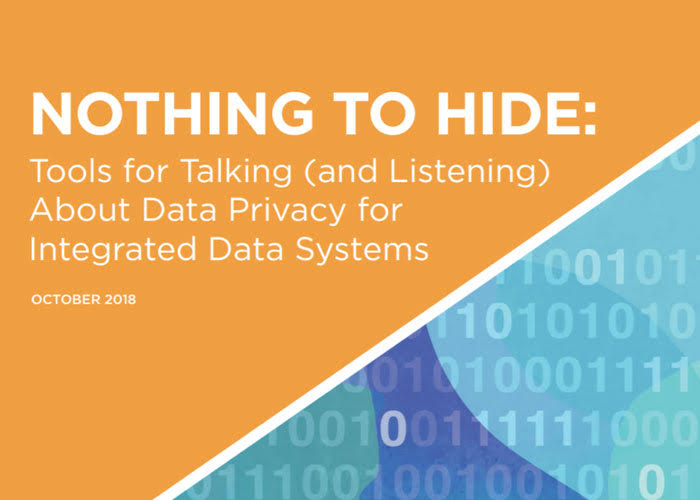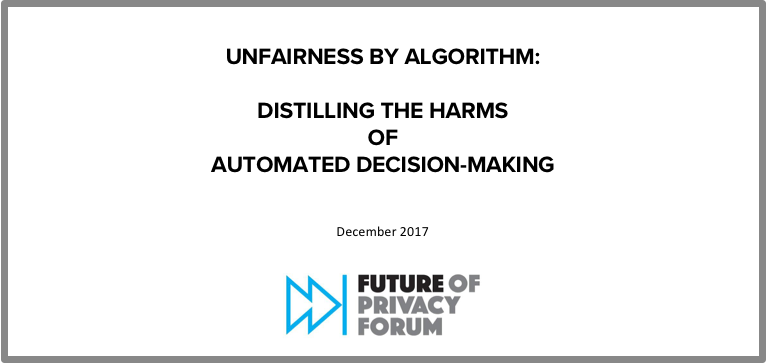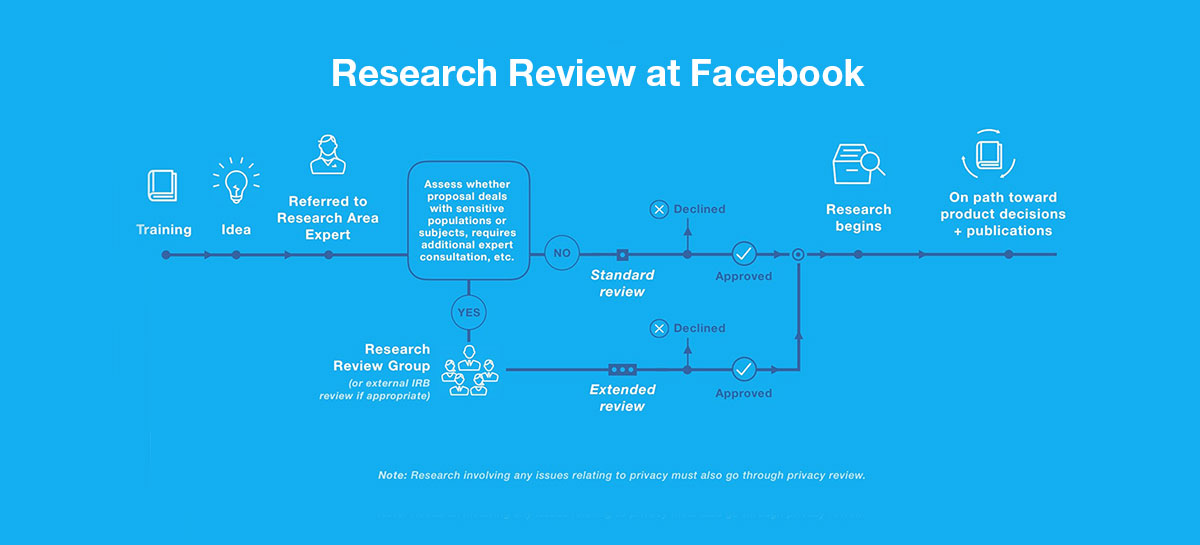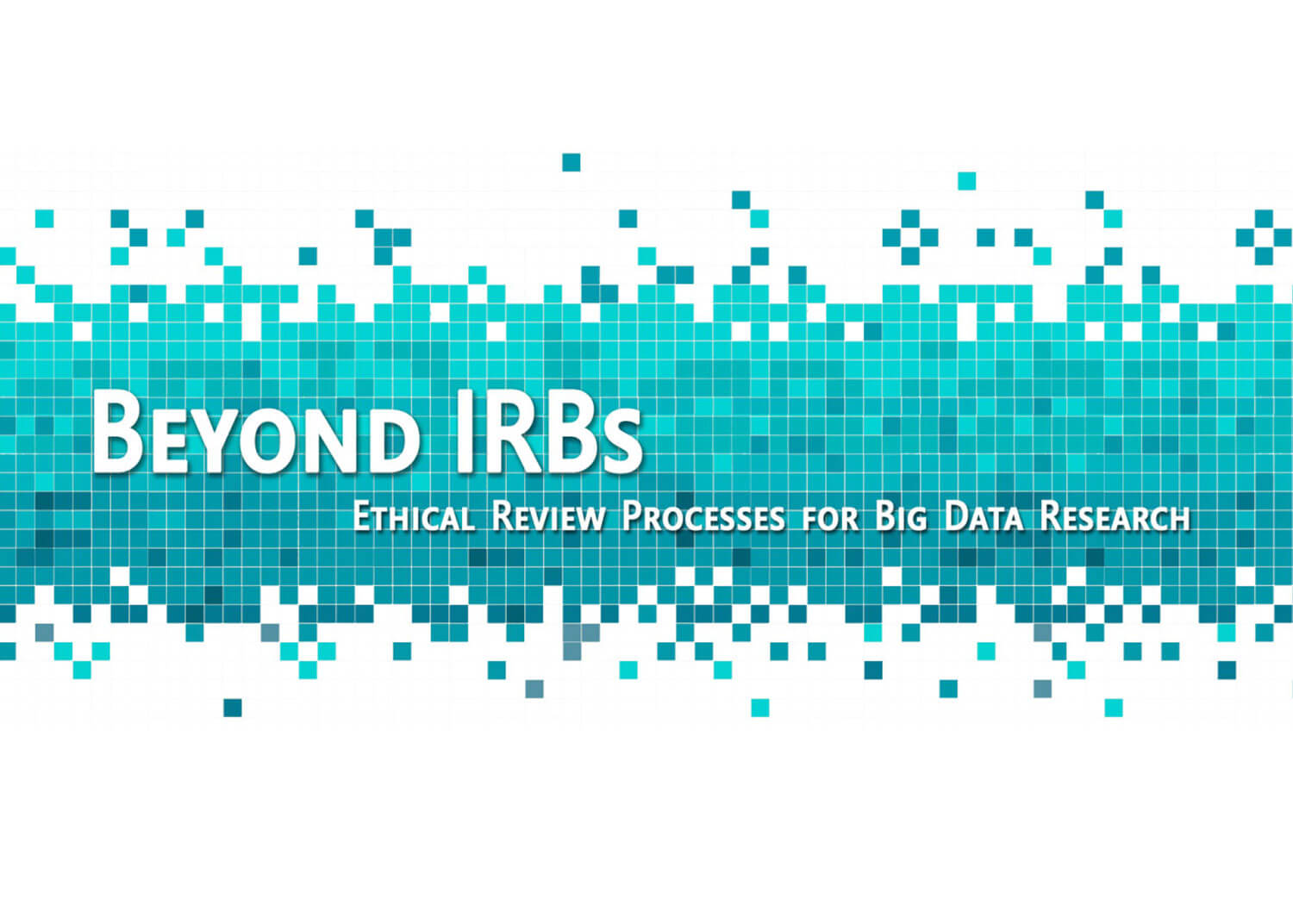School Safety Report Neglects Privacy Concerns
Yesterday, the Federal Commission on School Safety released a report detailing its conclusions, after holding a series of meetings and hearings in the wake of school shootings. Nearly every aspect of the Commission’s report focuses on sharing data and, thus, has privacy implications for students, teachers, and the public.
New Resource on FERPA's Health and Safety Emergency
The Future of Privacy Forum has released a new guide, Disclosing Student Information During School Emergencies: A Primer for Schools, which offers four best practices for information disclosure and answers five frequently asked questions about FERPA’s requirements for sharing information during health or safety emergencies. Read more about this guide in the Future of Privacy Forum’s […]
Nothing to Hide: Tools for Talking (and Listening) About Data Privacy for Integrated Data Systems
Data-driven and evidence-based social policy innovation can help governments serve communities better, smarter, and faster. Integrated Data Systems (IDS) use data that government agencies routinely collect in the normal course of delivering public services to shape local policy and practice. They can use data to evaluate the effectiveness of new initiatives or bridge gaps between public services and community providers.
Empirical Research in the Internet of Things, Mobile Privacy, and Digital Advertising
In the world of consumer privacy, including the Internet of Things (IoT), mobile data, and advertising technologies (“Ad Tech”), it can often be difficult to measure real-world impact and conceptualize individual harms and benefits. Fortunately, academic researchers are increasingly focusing on these issues, leading to impressive scholarship from institutions such as the Princeton Center for Information Technology Policy (CITP), Carnegie Mellon University School of Computer Science, UC Berkeley School of Information, and many others, including non-profits and think tanks.
Unfairness By Algorithm: Distilling the Harms of Automated Decision-Making
Analysis of personal data can be used to improve services, advance research, and combat discrimination. However, such analysis can also create valid concerns about differential treatment of individuals or harmful impacts on vulnerable communities. These concerns can be amplified when automated decision-making uses sensitive data (such as race, gender, or familial status), impacts protected classes, or affects individuals’ eligibility for housing, employment, or other core services. When seeking to identify harms, it is important to appreciate the context of interactions between individuals, companies, and governments—including the benefits provided by automated decision-making frameworks, and the fallibility of human decision-making.
7th Annual Privacy Papers for Policymakers
We look forward to an exciting program of thought leadership, including academic guest speakers and the authors of this year’s PPPM scholarship (announced & awarded in November), who will engage with policymakers in a discussion of academic ideas with practical real-world impact.
Examining Ethics, Privacy, and Research Reviews
Today, the Future of Privacy Forum (FPF) and the Ohio State University’s Program on Data and Governance are holding a discussion of ethics, privacy and practical research reviews in corporate settings. This timely event, which follows the White House’s call to develop strong data ethics frameworks, convened corporate and academic leaders to discuss how to integrate ethical and privacy considerations into innovative data projects and research.
Algorithmic transparency: Examining from within and without
As the volume of consumer data grows, an increasing number of decisions previously made by humans are now made by algorithms. Many thought leaders have called for algorithmic transparency to ensure that these decisions aren’t leading to unfair or discriminatory outcomes, but algorithmic transparency is tricky to implement. Last December, FTC Commissioner Julie Brill acknowledged […]
Beyond IRBs: Designing Ethical Review Processes for Big Data Research
Kicking off a great event this morning, Beyond IRBs: Designing Ethical Review Processes for Big Data Research, with over 60 of the country’s top academics and industry researchers. Thoughtful Key Note remarks from Professor Ryan Calo, from the University of Washington School of Law, have framed the conversation today around how best to create incentives in […]
What Privacy Papers Should Policymakers be Reading in 2016?
Each year, FPF invites privacy scholars and authors to submit articles and papers to be considered by members of our Advisory Board, with an aim toward showcasing those articles that should inform any conversation about privacy among policymakers in Congress, as well as at the Federal Trade Commission and in other government agencies. For our […]










